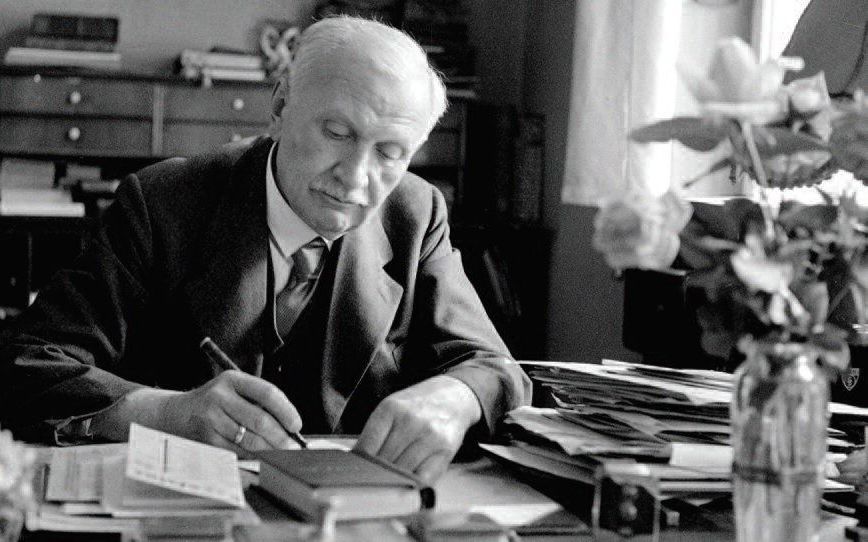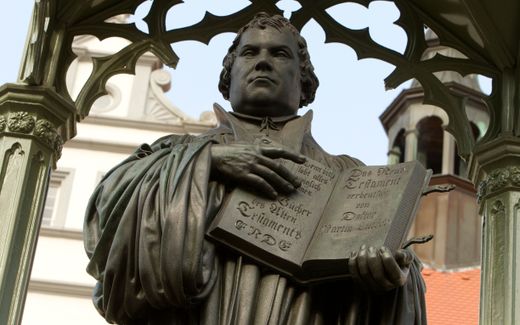For Ludwig Mahnert, Nazi-Germany was the “Motherland of the Reformation”

Ludwig Mahnert had hoped that the German annexation of Austria in 1938 would lead to a Protestant revival. But it didn't. Photo Archiv Christuskirche Innsbruck
Christian Life
“The suffering time of the German-Austrian tribe is over", Ludwig Mahnert rejoiced. Mahnert served as a pastor in Innsbruck in 1938. He saw significant benefits in the "Anschluss" with Germany in March 1938.
Perhaps I should speak about blessings more than benefits. The minister compared the annexation with nothing less than Christ’s resurrection.
“Our glorious, beloved fatherland is free”, Mahnert preached in the next Easter sermon in April. “In three days, it has risen, as its Saviour and Lord, with whose holy name an unlawful government had wickedly abused. In three days, according to the words of the Führer, the Lord has defeated them in a mighty judgement of God, and the German Ostmark (Nazi term for Austria, EvV) is once again safe and sound in the protecting and warming arms of the Loving Mother.”
Evert van Vlastuin (1972) has been working as a journalist from the early 90s.

He has interviewed several Nobel Peace Price winners as the former South African president F. W. de Klerk and two leaders from Northern Ireland, John Hume and David Trimble.
From 2001, he worked as a foreign news reporter for the Dutch Reformed Daily. Since 2021, he works as managing editor for the start-up CNE.news.
We don’t know whether the people of Austria said “Amen” to this sermon, but no doubt there was much enthusiasm for the Anschluss. Especially Protestants felt they were an unwanted minority in the Catholic country. And above that, the Christuskirche (Christ Church) where Mahnert had his ministry, was attended by many people who had German roots. That was not the case with Mahnert himself; he was from Steiermark (the present Slovenia).
National Protestantism
I would not have known this if I had not picked up a copy of the church magazine Die Brücke when I attended the Christuskirche in Innsbruck. The researcher Vinona Katzmayr wrote some articles in that about Pastor Mahnert and the German national Protestantism he stood for.
The Christuskirche is a magnificent building with mountains in the background. Yet, it only serves a small minority. There are not many Protestants in Tirol, the Austrian region where Innsbruck is. In 1938, when Hitler annexed Austria, this was no different.
Therefore, many Protestants welcomed the so-called Anschluss by Nazi Germany as a return to the "Motherland of the Reformation”. Pastor Mahnert (1874-1943) went at the forefront himself, mixing with the "frenzied crowds." And a few weeks later, he preached that Easter sermon.
Novels
The annexation by Germany fulfilled his ideal. Mahnert was also a literary person who authored several historical novels, and he could express his thoughts beautifully. Since his installation in the congregation in 1923, it was no secret that the pastor included much politics into his theology. In a biographical lexicon that I found, I read that so many people came to listen to his sermons that they even had to sit on the stairs of the pulpit.
Each year, for example, he organised a "festive thanksgiving service" in January for the establishment of the German empire in 1871. In the 30s, he even organised a weekly “Aryan celebration” (“völkische Gottesdienst”) on Wednesdays.
During these services, it was not unusual to speak about an “Aryan Jesus”. Later on, the Jewishness of the Old Testament was questioned as well. In between, he uttered some criticism on the Austrian government and showed his sympathy with the National-Socialistic regime up north.
Mahnert put himself entirely at the service of "national Protestantism", as he called it. The state and church should cooperate closely to realise the "divine mission" of the people.
As a fellow-Protestant, I have to say that this “völkische” religion was no less than political religion. It was not God but the nation that was worshipped here. The Nazi ideology was leading, not the Word of God, for which Martin Luther stood.
Of course, the fact that Roman Catholics dominated Austria played a role. The Protestants probably had good reasons not to feel at home altogether. That explains the fondness for Luther's country. But that Mahnert saw Hitler as a messenger of God, is still not easy to understand today.
Jews
Okay, this was 1938. But how did it go further? Well, the Nazis implemented their own agenda in which was no place for neither “Luther” nor “church”. Ecclesiastical feasts received a nationalistic connotation. Religious education from churches was cancelled.
Mahnert’s assistant pastor Martin Putschek was removed from his post, since he had a Jewish grandmother. Most other Jews in Innsbruck were persecuted. By walking through the city, I saw monuments reminding of their presence and deportation.
To sum it all up, the Anschluss did not bring the Protestant revival that the pastor had hoped for. According to Die Brücke, Mahnert saw all this as a “temporary misunderstanding” that would soon be over. Nevertheless, he lost his enthusiasm and passed away disappointedly in 1943. He received a party burial, not an ecclesiastical funeral.
Vatican State
Of course, almost 85 years after the Anschluss, it is easy to judge. Perhaps, we should not do so.
Some things we can understand. Pastor Mahnert was a literary figure as Pastor Mahnert, who loved the German language. He was both proud and grateful that it was Luther who was blessed to summarise the Biblical message powerfully again. And, okay, since Luther was born in one of the many German nations, it would not have been dangerous if Mahnert loved the German Empire because of that.
But Mahnert went further. As far as I can see, his big mistake was to connect the Reformation with a worldly state. Does Luther’s hymn not say: That Word above all earthly powers? Have not Protestants said for generations that one of the Roman Catholic errors was that they were no strangers anymore because of the Vatican State?
The church is not on earth to solve earthly problems but to promote the Kingdom of heaven. By glorifying Germany as the “Motherland of the Reformation”, Mahnert politicised the church. Sooner or later, that had to collide with the message of Christ, Who says: "My Kingdom is not of this world."
An earlier version of this article was published in Dutch in Reformatorisch Dagblad at October 19th, 2018.
Related Articles






